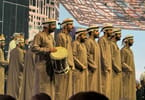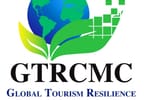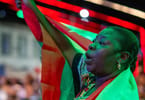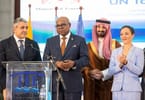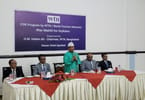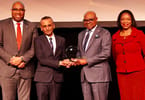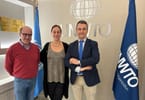The Non-Aligned Movement (NAM) summit in Tehran is bringing surprises to regional experts. Iran, that was almost alienated and dormant, managed its comeback to regional politics by attending and shunning off its so-called egoistic approach towards Saudi Arabia.
The Organization of Islamic Cooperation (OIC) meeting last week in Mecca saw Iranian President Mahmoud Ahmedinejad sitting next to Saudi King Abdullah bin Abulaziz, in a frank discussion about Syria. Iran strongly criticized the decision to expel Syria and claimed that it looked foolish and pointless and claimed that expulsion is a violation of the OIC charter.
Iran had every reason to boycott the OIC meeting, or come and denounce its hosts for supporting the ruthless suppression of the Bahraini uprising. Instead, Iranian officials came to the OIC to try to mend fences with the pro-US, anti-Iranian Saudi and Gulf states (and assure their attendance at the NAM conference this week), and try to bring the bloodshed in Syria to an end. “Every country, especially OIC countries, must join hands to resolve this issue in such a way that will help the peace, security, and stability in the region,” said Salehi. What better place or better time for the devout Ahmedinejad than Mecca as Ramadan comes to a close? The Saudi king even announced a gift for Iran and the world’s Shia with his initiative of a Sunni-Shia dialogue center.
Iran’s foreign policy demarche chalked up another plus with Egyptian President Mohamed Morsi’s announcement that he, not his new Vice President Mahmoud Mekki, will attend the NAM summit this week in Tehran, the first visit of an Egyptian head of state (or any senior official for that matter) since the Iranian Revolution in 1979 and diplomatic relations were severed in 1980 following Egypt’s peace treaty with Israel.
Now Iran is hosting the NAM Summit from August 26 to August 31. Pakistani President Asif Ali Zardari is also attending the event.
The NAM was created in 1961 during the collapse of the colonial system and had one main premise – all member states committed not to form alliances with the major world powers (namely the United States and the former Soviet Union).
Today, the NAM consists of 120 member states and 21 observers. While in the past the NAM had served as an important tool, which protected post-colonial states, in the present, Iran intends to manipulate it for its own agenda.
Specifically, due to the NAM’s sheer size, Iran can attempt to form a voting coalition to support its own agendas in the UN. Apart from the possibility of attempting to form a voting coalition during the conference, Iran will serve as the NAM president for the following three years, and will be able to speak in the name of the NAM states for the length of its presidency. Such a situation is critical for some countries of the western world that are of the view that the Iranian regime should not be allowed to exploit the NAM movement for its own purposes. The danger in allowing this to happen can be seen in the Iranian agenda itself, which includes restructuring global management and acquiring Iranian global status, undermining the UN sanctions, and putting a “spotlight” on the Islamic awakening.
On the other hand, United Nations Secretary-General Ban Ki-moon will attend Iran for the Non-Aligned Movement (NAM) summit next week, defying objections from Israel, the United States, and Jewish groups worldwide to boycott the event.
A statement issued by his office said Ban “looks forward” to the summit and working with the visiting leaders, “including the host country,” in an effort to reach “solutions on issues that are central to the global agenda.”
“With respect to the Islamic Republic of Iran, the Secretary-General will use the opportunity to convey the clear concerns and expectations of the international community on the issues for which cooperation and progress are urgent for both regional stability and the welfare of the Iranian people,” the spokesperson said, “These include Iran’s nuclear program, terrorism, human rights, and the crisis in Syria.”
Conferences come and go, but they are always a bit of a litmus test for the host country. The 16th Non-aligned Movement (NAM) summit — dismissed by the Washington Post as a “bacchanal of nonsense” — in Tehran from August 26-31 is being attended by virtually all NAM’s 120 member countries, including over 40 heads of state, with current NAM President Morsi the guest of honor. Egypt hosted the last NAM conference in 2009, and according to protocol, the Egyptian head of state presides over NAM activities until the next conference. That meant first Hosni Mubarak, then Field Marshall Mohamed Tantawi, and as of July 1, Mohamed Morsi. (Egypt last hosted the NAM conference in 1964, and Gamal Abdel-Nasser headed the organization from 1964–1970.)
NAM was founded in Belgrade in 1961 by Yugoslav President Josip Broz Tito, Indian Prime Minister Jawaharlal Nehru, Egyptian President Gamal Abdel Nasser, Ghana’s first President Kwame Nkrumah, and Indonesian President Sukarno, all legends of the national liberation movement, with solid anti-imperial credentials, who advocated a middle course for the developing world between the Western and Eastern blocs in the Cold War. Its principles, like the OIC’s, are solidarity and peaceful resolution of conflicts, though it was founded as a counterweight to the superpowers, abjuring big power military alliances and pacts, while the OIC was founded and originally funded by Saudi Arabia as an explicitly anti-communist club solidly in the Western camp. Neither organization has had much influence in world affairs, with NAM going into decline after the collapse of the Soviet Union, and the OIC — as its latest resolution on Syria attests – never straying far from the US policy fold.
Nonetheless, NAM represents nearly two-thirds of UN members and 55% of the world’s population. At the seventh summit held inNew Delhi in 1983, the movement described itself as “history’s biggest peace movement,” placing equal emphasis on disarmament. However, since the end of the Cold War, NAM has struggled to find relevance, as other blocs such as BRIC (Brazil, Russia, India, and China) formed to act as a counterweight to the sole remaining superpower, not based so much on ex-colonial status, but on ability to project influence. Brazil has never been a member of NAM.
During the 1970s and early 1980s, NAM sponsored a campaign for restructuring commercial relations between developed and developing nations, the New International Economic Order, and its cultural offspring, the New World Information and Communication Order, which still has relevance today. The movement is publicly committed to sustainable development and the attainment of the Millennium Development Goals, making international financial decision-making more democratic, easing poor countries’ debt burden, making trade fairer, and increasing foreign aid.
By hosting the conference and taking on the responsibility for NAM leadership, Iran is clearly intent on injecting new life into the most important anti-imperialist international organization, given that the UN, the OIC, and the Arab League are all more or less subservient to the US Middle East agenda.
NAM summits have traditionally been held every few years. Of the last three, two were hosted by Muslim countries – Malaysia (2003) and Egypt (2009). The 2006 conference was hosted by Cuba. NAM disappeared from sight under Egyptian control, but the new prominence of Muslim countries in NAM’s affairs shows that the Muslim world has begun to take on the mantle of third-world solidarity once claimed by the socialist world. As China becomes a developed superpower concerned primarily with its own regional power and economic well-being, and Russia joins the Euro-club, the Muslim world is redefining itself, with NAM corresponding to its age-old concerns with equality and social justice.
WHAT TO TAKE AWAY FROM THIS ARTICLE:
- “With respect to the Islamic Republic of Iran, the Secretary-General will use the opportunity to convey the clear concerns and expectations of the international community on the issues for which cooperation and progress are urgent for both regional stability and the welfare of the Iranian people,” the spokesperson said, “These include Iran's nuclear program, terrorism, human rights, and the crisis in Syria.
- Apart from the possibility of attempting to form a voting coalition during the conference, Iran will serve as the NAM president for the following three years, and will be able to speak in the name of the NAM states for the length of its presidency.
- Instead, Iranian officials came to the OIC to try to mend fences with the pro-US, anti-Iranian Saudi and Gulf states (and assure their attendance at the NAM conference this week), and try to bring the bloodshed in Syria to an end.






